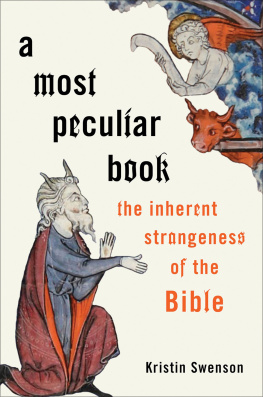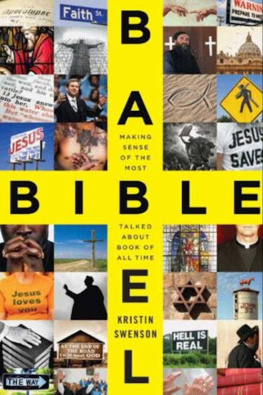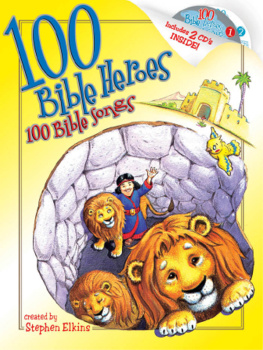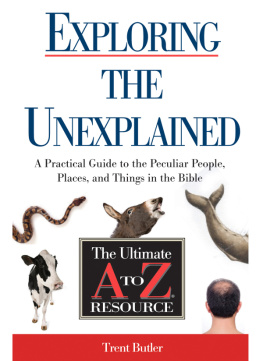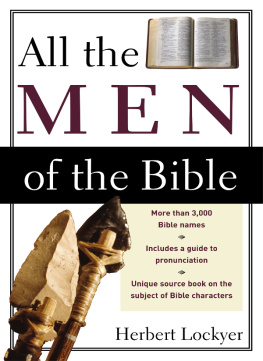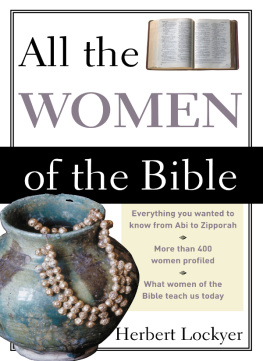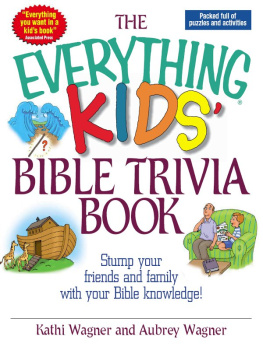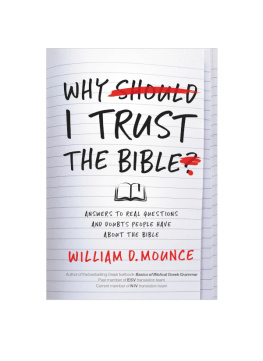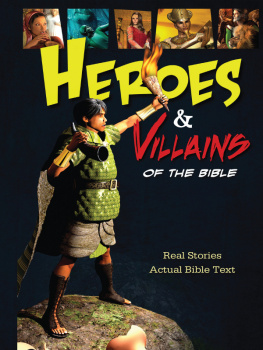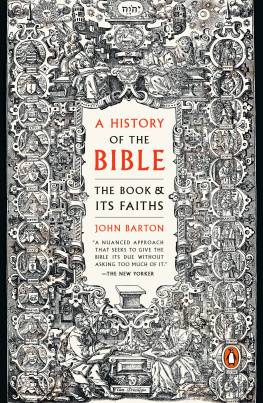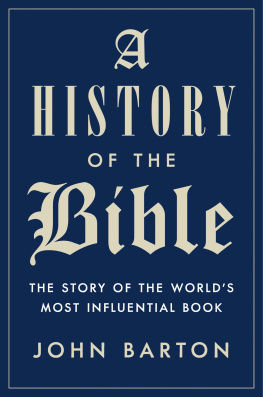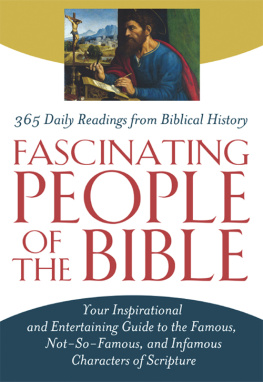A MOST PECULIAR BOOK

Oxford University Press is a department of the University of Oxford. It furthers the Universitys objective of excellence in research, scholarship, and education by publishing worldwide. Oxford is a registered trade mark of Oxford University Press in the UK and certain other countries.
Published in the United States of America by Oxford University Press
198 Madison Avenue, New York, NY 10016, United States of America.
Kristin Swenson 2021
All rights reserved. No part of this publication may be reproduced, stored in a retrieval system, or transmitted, in any form or by any means, without the prior permission in writing of Oxford University Press, or as expressly permitted by law, by license, or under terms agreed with the appropriate reproduction rights organization. Inquiries concerning reproduction outside the scope of the above should be sent to the Rights Department, Oxford University Press, at the address above.
You must not circulate this work in any other form and you must impose this same condition on any acquirer.
Library of Congress Cataloging-in-Publication Data
Names: Swenson, Kristin M., author.
Title: A most peculiar book : the inherent strangeness of the Bible /
Kristin Swenson.
Description: New York, NY, United States of America :
Oxford University Press, 2021. | Includes index.
Identifiers: LCCN 2020015469 (print) | LCCN 2020015470 (ebook) |
ISBN 9780190651732 (hardback) | ISBN 9780190651756 (epub)
Subjects: LCSH: BibleAppreciation. | BibleCriticism, interpretation, etc.
Classification: LCC BS538 .S94 2021 (print) |
LCC BS538 (ebook) | DDC 220.6dc23
LC record available at https://lccn.loc.gov/2020015469
LC ebook record available at https://lccn.loc.gov/2020015470
Printed by LSC Communications, United States of America
For Leland and Lowell
Contents
This book has been a long time coming. If Im honest about it, I suppose it began back when, as a churchgoing kid, I started stumbling and fumbling past the Bibles internal contradictions and bewildering passages. At first, I thought it was just me, some failure on my part to see the seamless whole and consistent peace-and-loveliness that Id assumed must be true of Gods Word, the Good Book, Holy Scripture, and all that.
Im grateful to my parents always, Cec and Dick, and to those senior members of my family and early faith community who demonstrated both respect and even love for the Bible while at the same time honoring the kind of questioning inquiry that inevitably arises when one reads that most peculiar book. Im lucky to have landed among them. St. Olaf College, where I majored in both biology and religion, elegantly synthesizes rigorous study in the hard sciences with a vibrant, dynamically lived Christianity. Im grateful for the education and encouragement I received there, not least their emphasis on orienting ones learning to be of service to others, including the nonhuman with whom we share this glorious planet.
The matter of learningboth the ongoing business of gaining information and the self-struggle of making sense of things with compassion and responsibilityalways depends on the wisdom of others. I am grateful to those who have graced my life and learning with the fruits of their own work. This includes not only the scholars of centuries past that Ive had the privilege to study and learn from but also those familymy sisters and their families, in-laws, cousins, aunts, uncles, grandparents and friends too many to name, who have generously shared with me their own knowledge and candor about the Bible. Our conversations informed this project.
This book really began to take the shape you see today thanks to OUP editor Theo Calderara, whose interest, expressed years ago, in our doing a book together led to conversations about just what that book might be. Here it is. Well, with inevitable shortcomings and probable failings, all of which are most definitely my own.
Along the way, Ive had continued support from Virginia Commonwealth University, where I learned more than I can say from wonderful students and colleagues and earned tenure, only shortly thereafter to leave. Mark Wood of the School of World Studies and others there have graciously extended my affiliation, which has helped my research and writing tremendously. Virginia Humanities supported this project with fellowships that grant faculty association at the University of Virginia and the opportunity to share (read: try out) some of this books material with a marvelously curious and intelligent community. Im grateful to UVAs excellent libraries and community of religious studies faculty and writers, including especially Martien Halvorson-Taylor, for help and counsel in developing this book.
To my lit salon of Richmond writers and the Cville women writers who have heard fits and bits of this project along its way and encouraged at every step, thank you. Thanks also to my Writers Story podcast cohost, Meredith Cole, whose companionship and good humor have eased the effort a book such as this requires.
My agent, Joanne Wyckoff, has been a wonderful advocate. And Im grateful to the anonymous readers who commented first on the proposal and again after Id drafted the book. Their remarks and ideas, corrections too, make this book better. Thanks also to Oxford University Presss amazing book-making team, including Asish Krishna, Brent Matheny, Judith Hoover, Rick Delaney, and Leslie Johnson.
Finally, thanks in full always to my husband, Craig, whose confidence in the value of my work never seems to shake. Thank you, thank you for being partner to me in this whole life-making endeavor of creativity and compromise. Youre right. Most of the time.
I have a confession to make. But Im worried that what you, an intelligent and discerning reader, will hear is not exactly what I mean. Then youll close this book and put it right back on the shelf. Yet what I want to tell youand the fact that it feels like a confessionis what drives this entire project. So, here it is:
I love the Bible.
That statement gives me the willies. Its something millions of Americans would nod right along with because it sounds so simple to understand. But my love for the Bible is not a tacit acceptance of everything in it as lessons or truths for immediate application. Not hardly. This is not a love for facile public display. Its not of the swept-off-my-feet, love-at-first-sight variety, but rather more like the complicated love that might develop after decades in a marriage. An arranged marriage. I grew up with the Bible in an open-minded, garden-variety Protestant congregation. And Ive come to love the Bible for all sorts of reasons, including some of the same reasons that can make it problematic and exasperating, even for reasons that make me disagree with it.
Look closely. Besides texts of lofty wisdom, inspiration, comfort, and guidance, the Bible contains bewildering archaisms, inconsistencies, questionable ethics, and a herky-jerky narrative style. Yet those features barely get a passing glance these days. Some believers simply explain them away, while nonbelievers use them as a reason to dismiss the Bible entirely. This book looks squarely at whats so weird, difficult, and disconcerting both about and in the Bible, and in the process shows how those qualities can actually enrich ones relationship, religious or not, to the text. I am not trying to convert anybody to anything except to learning. Im committed to providing information, digging into the text and its background, and sharing questions of my own that might resonate with you. Those questions are both what make me love the Bible and what make that love so complicated.

